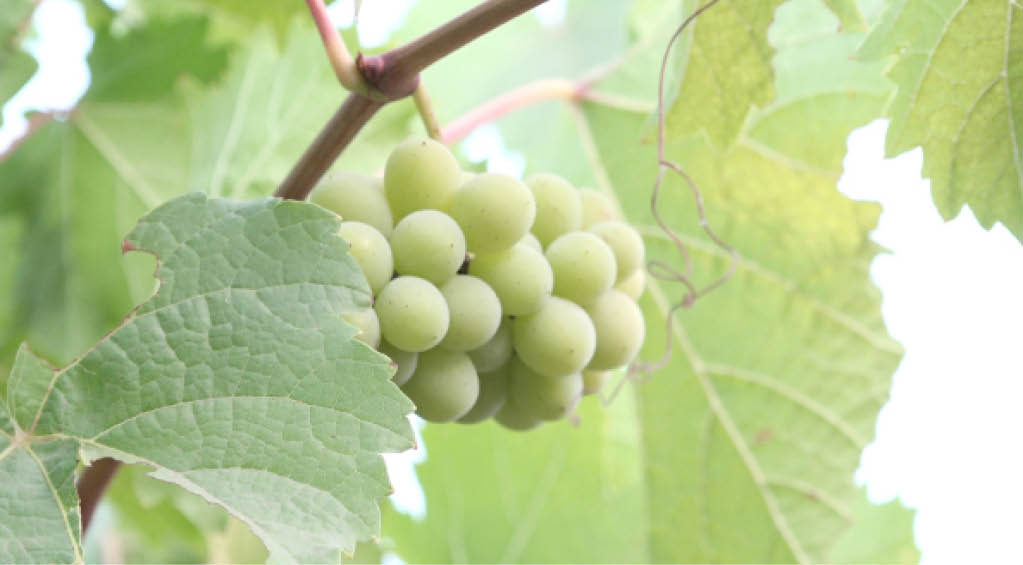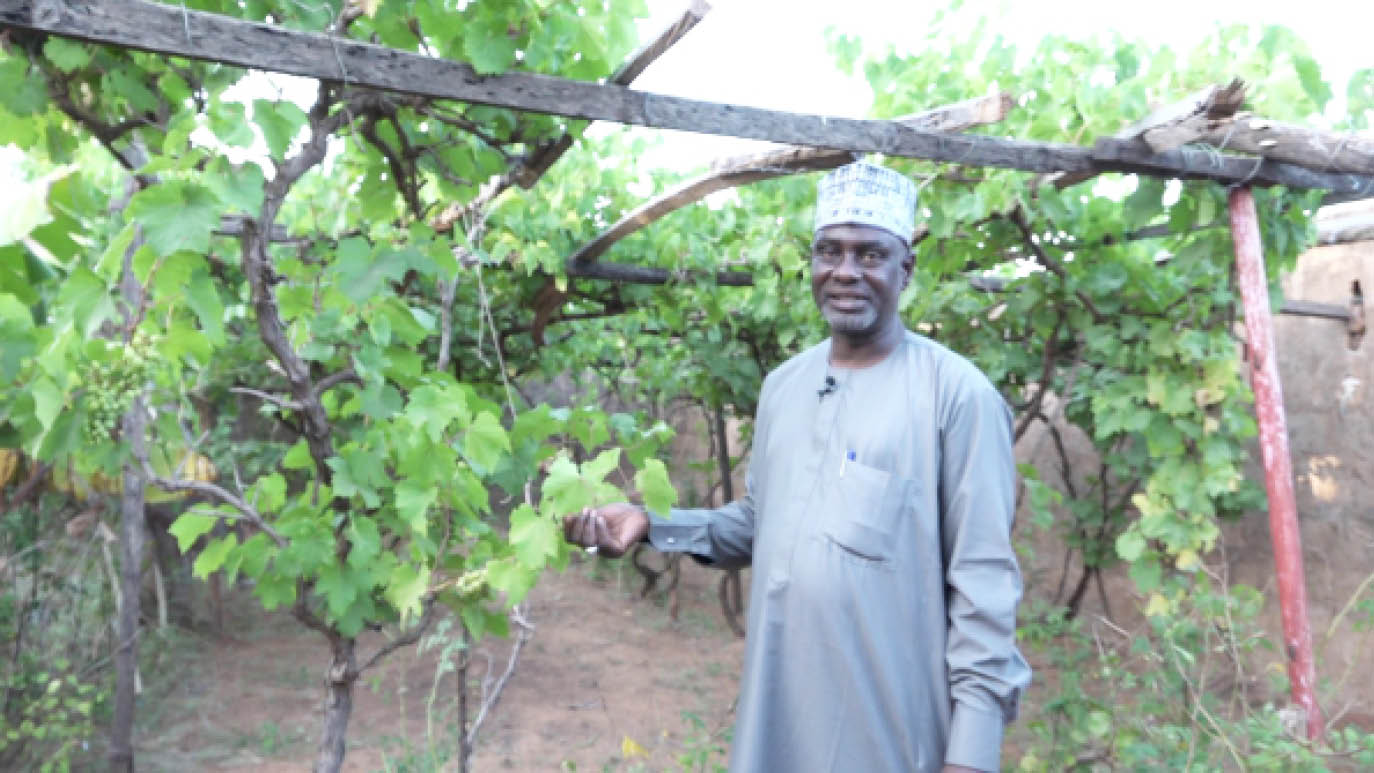Many people think that grapes won’t grow in Sokoto State. It has rice, cattle, milk, onions, tobacco, yoghurt, hydes and skin, dried meats and many other fruits and products. Located in the North West, it shares a border with Niger Republic.
They point to the nature of the soil and lack of adequate supply of water, as factors which won’t allow the fruit to flourish.
The farm in Sifawa
If we turn to Sifawa in Bodinga Local Government Area of the state, we find that an interesting development has occurred. This is a community where Shehu Usman Dan Fodio, founder of the Sokoto Caliphate, lived for a number of years and where he wrote many books.
Samaila Sifawa has reversed established concepts, by venturing into the cultivation of grapes, and he has been involved in this activity for some five years now.
Flour millers to cultivate 4,000 hectares of land for wheat production in 2023
Starting quail farm: what you need to know
Sifawa’s experiment
He began the cultivation of grapes as an experiment in 2017.
According to Sifawa “This is my grape farm in Sifawa, Bodinga Local Government Area of Sokoto State. This farm was actually conceived and started in the year 2017/2018, and as you can see this is the fourth harvest. After we planted the seedling, it took about a year for it to grow. After it grew, it took four months for it to yield. Every year, we harvest three times which means it yields within a period of just four months.”

A trip to Sudan
Sifawa, a graduate of Management, tells the story of how his interest in grape cultivation began.
His words “I was in Sudan around 2016 and while there, I saw grapes and I asked and they said it was cultivated there in Khartoum. I looked and there was no difference between our own environment and that of Khartoum. I said why can’t we try these grapes in Sokoto. So, I formed the idea in Khartoum.”
Grapes in Jos
He continues “I was privileged to be nominated by the president as a participant at NIPSS. When I went there, I was talking about grapes development and somebody said grapes grow in Jos. He added that Jos has a very favourable climate. He took me to the place, and it was from there in 2017, after my graduation from NIPSS, I requested the same person to buy twenty seedlings for me to try in Sifawa.”
3 harvests every year
The original seeds he received all survived, and the plant is now harvested thrice a year.
Sifawa adds “What I planted here as you can see from the farm, none actually died. All of them survived which means the land here in Sifawa is good and fertile for grape production.”
Great economic value
Grape farming can turn around the economy in a comprehensive way, and lift many out of poverty. Sifawa says “If you look at the economic value of grapes today in the context of both international and national economy, you will find out that if our government will concentrate, especially this government that puts emphasis on agriculture, this is one line of product that can take a lot of youths from the streets. If government can take this and grow it in commercial quantity, and then employ our youth, and maybe each is given a hectare and asked to manage it, believe me in one year, its already yielding.”
Initial steps
He comments on the initial steps he took in Sifawa before commencing grape farming.
Sifawa explains “He advised that we have to remove the surface land and then mix it with the traditional fertilizer, the by products of camel, sheep, we call it Taki. Then we mixed the land. After that he put them in the soil and they started growing. He said we must water them three times in a day. Because of that I had to dig a borehole specifically for this.”
He expands on his remarkable story “Within one year, they had grown to maturity. Within an additional six months, they had already yielded. In one and a half years, we had cultivated more than 40 to 50 kilos in this farm. This is the interesting story. One thing that shocked me is the general opinion that grapes will not grow in Nigeria, maybe in the North, in particular Sokoto. But look at it today, and this is the fifth year now.”
Other species of grapes
Sifawa has interesting plans for the future.
“I am thinking of trying different varieties given the chance. If I have the opportunity I will want to see if I can grow any type of grape grown in the world and domesticate it here in Sifawa.”
Value chain
He thinks that if government can invest in grape production, this will be a life transforming step for many.
His words “It was an experiment. The essence of experiment is if it works, then you start planning how to make it big or commercialise it. It’s my intention that if I have the opportunity, I will build a very big grape farm in Sifawa here, because already it has been justified, it has been confirmed that it can be grown. Looking at the commercial value, we all know that 80 percent of the grapes consumed in this country are either imported from Dubai or our neighbours here, Cotonou, or maybe from Europe. If we can do it locally, why can’t we invest to save the foreign exchange of importing such products that we need here. So many things can be done from it.”
500mn
He speaks on the possible impact a developed grape economy can have on Sifawa. “I can tell you the advantage is beyond any economist’s imagination. Look at it this way. If one can invest N500 million in grape production in Sifawa, because now it has been confirmed it can be grown. Don’t forget that a typical Nigerian uses N500 million to build a house where he can sleep for just one week in a year, because maybe he does not even stay there. Assuming that money is invested in this, I can tell you the whole youth we have around here will be gainfully employed, because it involves so many things.”
Multiplier effect
Sifawa reveals a big opportunity “It involves taking care of the environment because it always has to be clean, it has to be watered three times. When it grows to maturity for harvest, it has to be harvested, how many people will you employ to harvest it? After harvesting it has to be packaged, it has to be marketed, it has to be taken to the consumer.”
Employment guaranteed
He develops the idea “All these are part of a value chain. There is a multiplier effect here and employment is guaranteed. Imagine N500m is invested in production of grapes in Sifawa, you are talking of not less than a hundred hectares of land. That is massive. I can tell you if the government can come in, this youth restiveness, that we talk about in this country, will become history. This is a trial. It works. People will be happy seeing that they nurtured something and it grew to maturity. It’s a big economic opportunity here.”

 Join Daily Trust WhatsApp Community For Quick Access To News and Happenings Around You.
Join Daily Trust WhatsApp Community For Quick Access To News and Happenings Around You.


